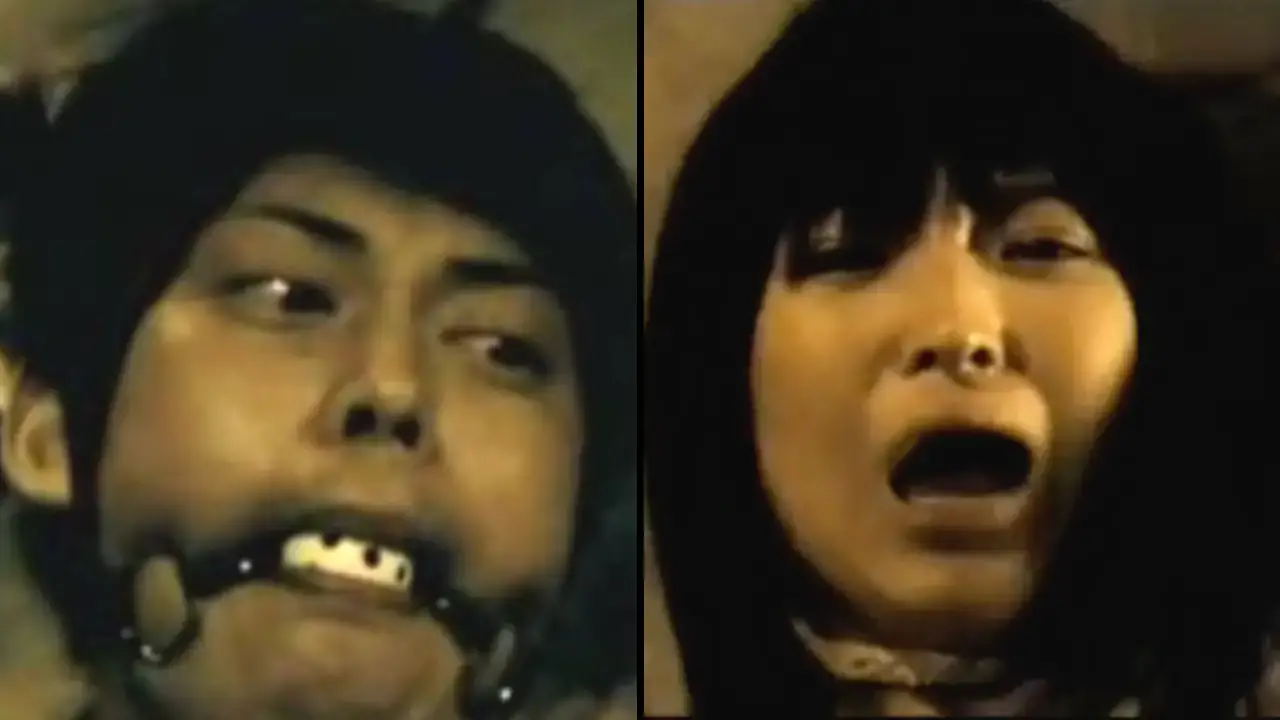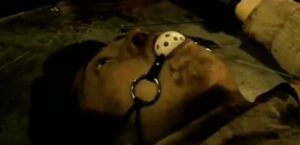
Credit: JollyRoger
Horror Film So Disturbing It Was Branded ‘Risk To Society’ And Banned In UK
A Japanese horror film has been banned from being shown in the UK, with it once being described as a ‘risk to society’.
Gurotesuku, which is translated to Grotesque in English, was released in 2009.
The synopsis reads: “An unnamed doctor has always had everything he’s ever wanted, but that has only made him develop more extreme and depraved needs.
“He kidnaps a young couple in the prime of their life together and forces them into a game of torment that slowly extinguishes their hopes for survival.”
Related Article: Netflix Serial Killer Horror Has Perfect Score Of 100% On Rotten Tomatoes
While it may sound like a typical survival horror movie, it is far from it.
In fact, it was refused an age-rating certificate by the British Board of Film Classification (BBFC) in the UK due to how disgusting and unsettling it is.
On the BBFC website, reasons have been provided for why the film hasn’t been given an age rating.
The governmental organisation stated: “The film was submitted for video classification in July 2009 and viewed by several Examiners and the two Senior Examiners.
“It was then referred upwards to the Head of Policy, the Director and the Presidential tier (consisting of the President and two Vice Presidents) for further viewing and consideration, as is the case with controversial works.
“After much debate and deliberation, and with various opinions expressed, the film was finally rejected in August 2009 (read the BBFC Press Release).
“This means that it cannot be legally supplied anywhere in the UK.”

The statement continued: “Although Grotesque was for the most part considered to be a well-made film, there is minimal narrative or character development.
“For the majority of its runtime of 75 minutes, the focus is on the s**ual assault, humiliation and extreme torture of the couple, who are kidnapped at the start of the film and subjected to a horrific ordeal until they are murdered at the end.
“The couple are subjected to acts of extreme torture, including amputation, castration and eye gouging.
“Towards the end of the film, the man is subjected to evisceration in order to attempt to save the woman and they are both murdered.
“The killer is then seen selecting his next victim as the film ends. There is a strong element of humiliation, brutality and sadism in the torture, which contravenes the Guidelines.”
Related Article: Gangs Of London Season Two Is ‘Violence On Steroids’ As Brutal TV Show Returns
The decision was taken by former BBFC director, David Cooke and senior colleagues.
Speaking to The Telegraph, he added: ”Unlike other recent ‘torture’-themed horror works, such as the Saw and Hostel series, Grotesque features minimal narrative or character development and presents the audience with little more than an unrelenting and escalating scenario of humiliation, brutality and sadism.
“The chief pleasure on offer seems to be in the spectacle of sadism (including sexual sadism) for its own sake.
”Rejecting a work outright is a serious matter and the board considered whether the issue could be dealt with through cuts. However, given the unacceptable content featured throughout cutting the work is not a viable option in this case and the work is therefore refused a classification.”
This decision means that selling or supplying the movie in the UK is illegal.
From the sounds of it, this is probably for the best.
Watch our Video of the Day below…